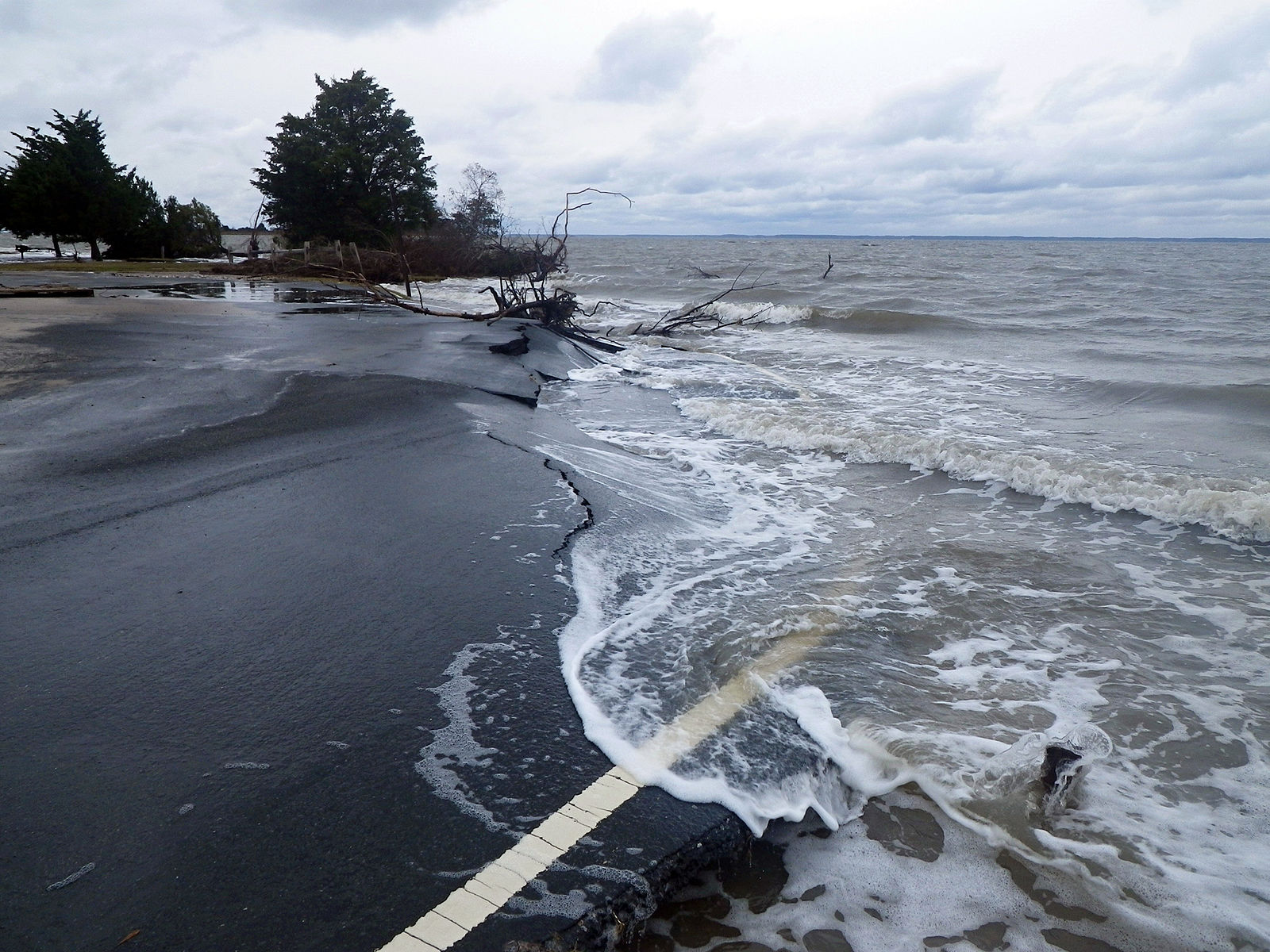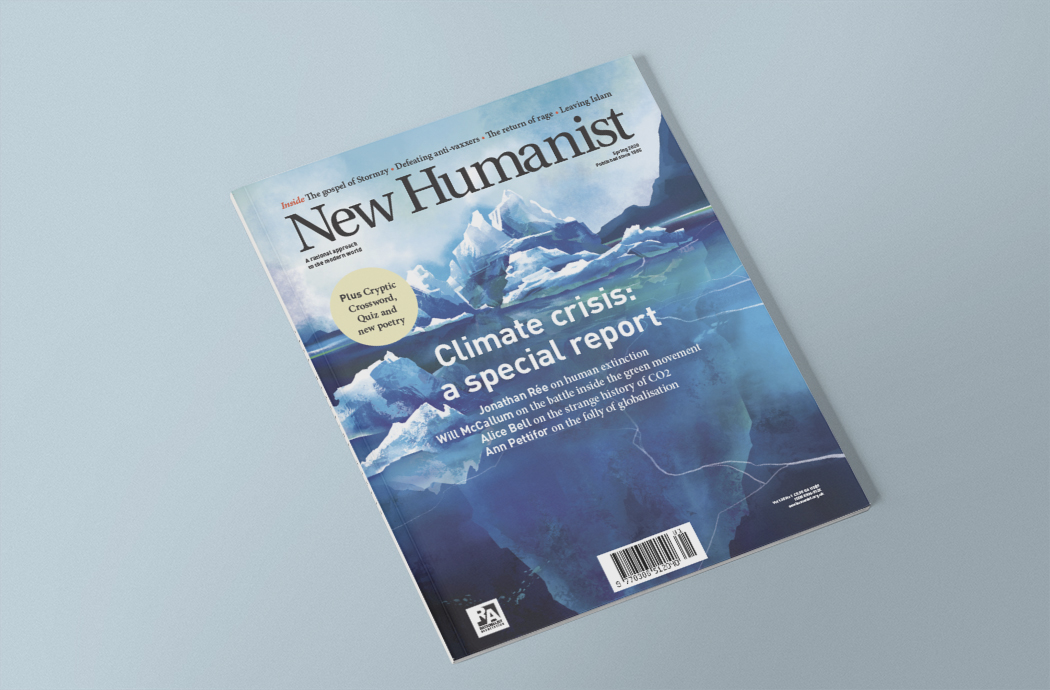Climate change policy has become part of the culture wars where polarization stifles progress. Greenpeace UK’s Will McCallum surveys Britain’s role and demands a flexible approach.
As we enter a new decade, in which both the politics and the weather seem to be becoming more extreme, I have to admit the world we live in is far from the one I was hoping for 10 years ago. In December 2009, after six solid months of taking direct action on climate change, I was camping in Trafalgar Square calling for radical measures at the Copenhagen COP, a summit generally deemed a catastrophic failure. I was part of a fringe movement, albeit one that had some significant successes – such as halting the first iteration of Heathrow’s third runway, and the eventual commitment to phase out coal in the UK. The people I worked alongside are the same as those I stand with now. The demand for radical climate action has never been more urgent; but if we want the next decade to be an improvement on the one just passed, we may have to change the way we approach the problems we are facing.
Despite the decade-long delay, it is still thrilling to witness a burgeoning mass climate movement with more ideas, more energy and crucially, more mainstream profile. It is in equal measure depressing that it comes against the backdrop of ten years in which our natural world has become increasingly fragile.
Last year saw the release of two terrifying reports by the world’s largest congregations of scientists working on the state of the planet – the Intergovernmental Panel on Climate Change (IPCC) and the Intergovernmental Science-Policy Platform on Biodiversity and Ecosystem Services. The common theme is that change is more devastating and more rapid than we previously thought. Irreversible damage has already been done – and in order to make sure the one planet we have remains healthy enough for future generations, immediate and far-reaching steps must be taken.
The monumental task of dealing with climate change and the rapid degradation of the natural world requires urgent uni- and multi-lateral action by those in power right now, whether you agree with their broader politics or not. Whether it is through persuasion or protest, we need to influence those in government – and fast. With such a short timescale, the need to break the political impasse on environmental issues and work together has never been greater.
Two years ago I wrote in New Humanist about the urgent need for more stories – fact and fiction – set against the backdrop of climate change, to help us prepare for the changed world we are facing. We must move beyond depictions of the future as either apocalypse or technological salvation, towards more realistic, grounded portrayals of the Earth we are inheriting and the different choices we will be faced with. I was concerned with the lack of any discourse about the existing reality: the fact that decision-makers everywhere are already assessing which species and habitats to save, which communities to prioritise, and which adaptation programmes to fund; not to mention the fact that hundreds of thousands, if not millions, of people are already living in a world altered by climate change.
Since then, the political, cultural and media landscapes have all changed immeasurably – in part because of the stark reality we find ourselves in. Last year, the UK designated the residents of Fairbourne its first direct victims of climate change. The Welsh seaside community is set to become the UK’s first to be displaced by rising sea levels (in January, 24 homes in the Yorkshire village of Skipsea were said to be seriously under threat, decades earlier than would have been imagined with pre-climate change coastal erosion).

Rising sea levels. Photo by NPS Climate Change response via Flickr.
Two years ago I wrote about Australian weather forecasters introducing purple into their colour palette to display record temperatures. This winter the continent faced its most devastating bushfires season – and what’s more, political leaders there are digging their heels in and refusing to allow the fires to galvanize activity on climate change.
Thankfully, not everyone is in a state of denial. In the past year, Extinction Rebellion, the youth movement energized by Greta Thunberg and many other movements globally have made climate protest mainstream in a way that was difficult to imagine two years ago. A recent Ipsos Mori poll suggested that 85 per cent of British adults are worried about man-made climate change. Literature and the visual arts are increasingly concerned with the theme of what we are doing to our planet.
If there is a gap now in the public discourse on climate, it is the lack of serious discussion about what measures are needed, and what compromises such action might entail. When I heard Thunberg speak in London in April 2019 she refused, quite rightly, to be drawn on arguing for specific solutions. As a schoolchild, she pointed out, it is not for her to say how to transform an economy to transition away from fossil fuels. Her role is to demand that those with power, knowledge and expertise tell the truth. The truth is that we are doing very little to change business as usual – a ‘high emissions scenario’ – which, if left unchanged, would likely lead to planetary warming of 4-6°C, with consequences almost impossible to plan for. Yet despite widespread awareness of this among the world’s political leaders, their efforts remain depressingly unambitious.
There are several barriers to action: the lobbying of vested interests, a financial system that continues to fund extractive industries, an economy based on overconsumption, environmental illiteracy and short-termism from those who manage our land and seas. However, there is also a significant issue around how we discuss what to do about it all. Instead of motivating people to act fast, the highly charged public debate is at risk of slipping into divisions based on political ideology. Policies and technological progress are judged on the basis of provenance, rather than their potential for tangible impact. Judging the motivations and personal ethical credentials of the individual proposing solutions seems to end up mattering more than the steps being taken.
From the left’s perspective, any measures taken by the right are never enough, and are likely to have a sinister motive. And all progress is held up against the backdrop of a global picture of suffering in which the UK must take a significantly increased share of the responsibility. For the right, all suggestions and proposals put forward by the left are economy-destroying and too radical. Some suggestions, such as nationalisation of major industries, or reparation payments for the Global South, are seen as downright dangerous. Climate change policy has become part of the culture wars, where truth and reason bear little to no relevance to the discussion.
The challenge of the next few years is how to strike the balance between treating environmental issues with the radical urgency required, whilst not allowing the debate to become so polarized that it stifles all progress. The analogy that comes to mind is that of two people passing someone drowning in a river, and in debating the perfect way to save them, miss the fact that they have slipped under the water. The opportunity cost of protracted online and media debate is great enough that it is arguably complicit in the failure to do what the science demands.
The debate over the date by which the UK should achieve net zero carbon emissions is a good example. The Labour Party, heavily influenced by grassroots campaigners, a renewed and energized membership and a global climate justice angle (much to the ire of some of their union members), chose to support a date of 2030 in its election manifesto last year. The Conservative government has committed to a date of 2050, in line with the European Union’s ambition (though some EU members such as Sweden and Finland have gone further, with 2040 and 2035 respectively). On the face of it, looking simply at the truth of climate change and its impacts, the choice is clear – net zero by 2030 provides the ambition required. If the UK demonstrated global leadership by committing to wean itself off fossil fuels by 2030, it is likely many would follow, stimulating a market shift towards sustainability and removing the charge of hypocrisy from the UK’s engagement in global environmental politics. For every year longer it takes after 2030, more lives will be lost – predominantly in countries without the resources to adequately deal with more extreme weather events.
Net zero by 2050, to anyone looking at the fires in Australia, the floods in Indonesia, the polar bears invading villages in northern Russia, is too far away to be worth celebrating. And yet the British government argues it is an international leader on climate change. To an extent this is true; for example, in terms of share of renewable energy, and the fact that it has legally binding targets to reduce carbon emissions, as well as in terms of international diplomacy. (The UK was a key player in the ambitious coalition that forged the 2015 Paris Agreement.)
Efforts like these certainly put it high up the list of top-performing countries on climate change – but that is not saying much. Brexit could pose further risks: 80 per cent of our environmental legislation derives from the EU, and there is mounting pressure to reduce environmental standards to secure non-EU trade deals.
From the perspective of a harried Whitehall civil servant you can see why achieving net zero by 2030 presents headaches. It would require the entire reinvention of the aviation industry; an automotive revolution with a huge shift to electric vehicles; an energy and heat system based solely on renewables; the overhaul of our food systems; and significant restoration of natural landscapes. This did not deter Labour, or the more radical elements of the environmental movement, from calling for 2030.
The unspoken truth is that many of those shouting loudest for net zero by that date know that it is practically impossible. While it is, on the face of it, the right level of ambition, it is worth asking: is it morally justifiable to pin hopes on an unachievable date for the sake of political point-scoring? Or is it dangerous posturing that could distract from coming up with a more immediate plan?
Despite years of campaigning for concrete dates, watching this debate play out has made me question the use of such hard-and-fast – sometimes arbitrary – deadlines.
Instead of being guides to action, deadlines can act as lightning rods for distracting, and occasionally destructive, discussion. Instead of forcing more battle lines to be drawn, we need ambitious plans to explain how we achieve net zero at all – and crucially, they must start tomorrow. With just 12 years to avert catastrophic climate change – that’s what the IPCC report said in late 2018 – there is no time for delay.
Brave leadership is required at this moment in history.
In this case, bravery could mean being ready to admit that not all the answers are there, and no matter what plans are put in place, it is certain that some losses will be suffered. Opposition parties also need to play their part – by not always assuming bad intentions, by putting aside ego, being generous in spirit and capacity, and getting involved in the development of these plans. Just because a plan isn’t perfect, it doesn’t mean that it is catastrophic. When allies choose to compromise, we should not jump to denounce them.
It is a depressing truth that a Conservative path to decarbonization and nature restoration focuses more on market-based solutions, benefits to business, and the role of private capital in conservation – rather than the welfare state and workers’ rights. But the Conservatives were elected with a large majority and have a mandate for government. If we don’t start implementing solutions to the climate crisis today – even where they are unfamiliar or distasteful to us – we face an ecological crisis that threatens to further fracture society and deepen inequality.
It is an incredibly fine line between demanding radical change and accepting that for the next five years we have a government who will not respond to that narrative. Activists such as myself, then, must grapple with the question of how to demand the nearly impossible, but remain rooted in realpolitik.

Side of the the Rainbow Warrior III.: photo by Glyn Baker via geograph.org.uk.
As someone who marched under the banner of ‘Demand the Impossible’ at climate protests just ten years ago, I feel that to continue to decry anything that falls short of perfection is to shirk responsibility. The 2009 me – hosting radical environmental politics workshops on a protest camp – would not be especially proud of the person I have become. How dull it is to call for nuance and balance.
I still wholeheartedly believe in the power of taking to the streets, and of activism that directly challenges the status quo, sometimes with bodies on the line. Such work is an essential part of the movement for change. But in this time-pressured situation, it needs to be focused on systematically shutting down the greatest culprits, those whose behaviour indicates no intention of changing course, like fossil fuel companies, or banks funding nature destruction.
Recent protests by climate radicals against the BBC and the Labour Party do not help the cause, since they target allies who have made good progress. Nor do stunts like Extinction Rebellion’s London tube protest in October, for which angry commuters, delayed from getting to work, received widespread sympathy.
I find myself prepared to make compromises in who I work with and the terms of reference I use that might have been unthinkable previously. For many in the environmental movement, the actions of Michael Gove as Environment Secretary, possibly the most ambitious of any we have had in the past 30 years, were a steep learning curve, that a Conservative could deliver meaningful change.
For anyone with friends in the education sector, this was particularly difficult to comprehend. Likewise, we must recognize the urgent need to frame the case for climate action in terms acceptable for business forums like Davos, whilst trying not to limit overall ambition. Such concessions do not come easily, and it remains vital we ensure that environmental issues do not ‘greenwash’ reputations or bad behaviour.
We need to be honest as we move forward; to evaluate plans and policies knowing that we have to accept a degree of compromise. We should work with the focused calm of a team on a life-saving mission. Our interactions with each other, and with those whose politics we may find distasteful, should be focused on the outcomes, which are desperately urgent.
Hysterics do not help at a time of crisis. In particular, they do not help the young people fresh to this brave new world: already they are suffering under the weight of doomsday headlines. In a recent interview Bob Dudley, former CEO of BP, said his daughter’s friends are so concerned about climate change that many of them are on anxiety medication.
The activists in this youth movement will be adults sooner than they realize, and preparing them for the reality of a changed world is something all of us in society bear responsibility for. They are looking to us for answers – and we need to provide them, as the very best teachers do, with balance, honesty and a calm demeanour.
Published 27 April 2020
Original in English
First published by New Humanist 2/2020
Contributed by New Humanist © Will McCallum / New Humanist / Eurozine
PDF/PRINTPublished in
In collaboration with
In focal points
Newsletter
Subscribe to know what’s worth thinking about.
Related Articles

Steady access to safe, drinkable water is still a privilege, and Europe is struggling with ever-worsening droughts. The new episode of the Standard Time talk show discusses chemical hazards, eco guerrillas, and why we can never have enough pelicans.

A combination of geopolitics and economic pressure is weakening the political will behind the European Green Deal, with the EPP leading the deregulatory offensive. Forests in particular risk becoming collateral victims of a rightwing U-turn.







